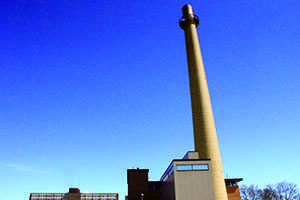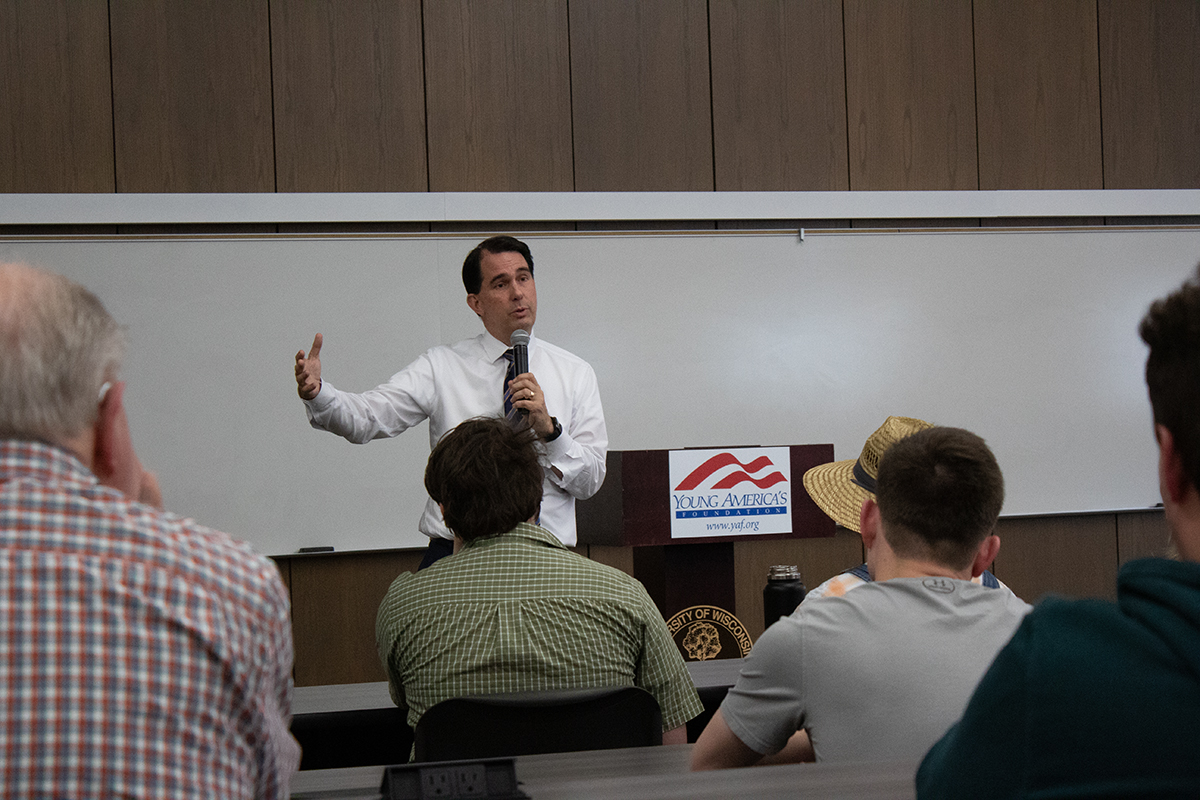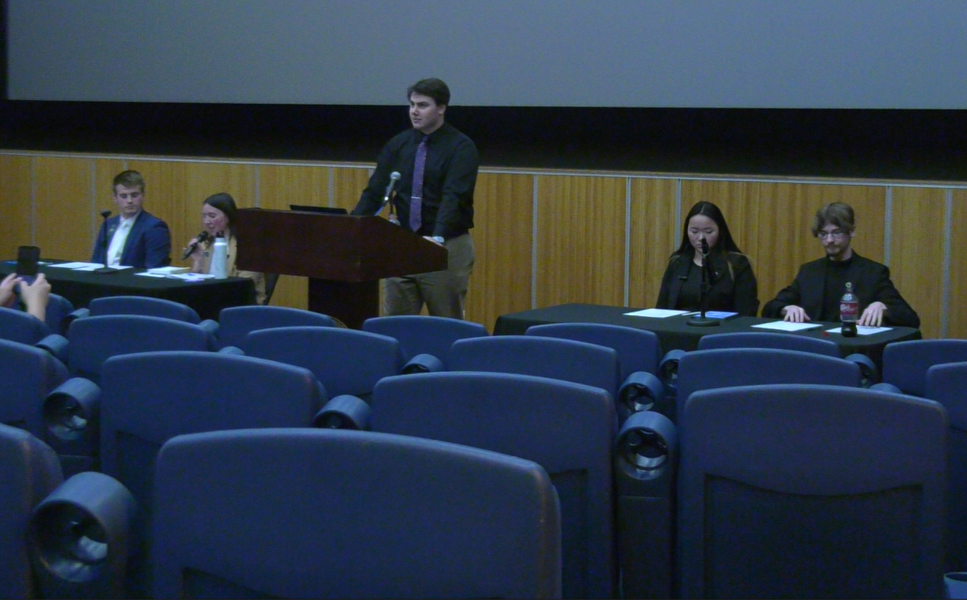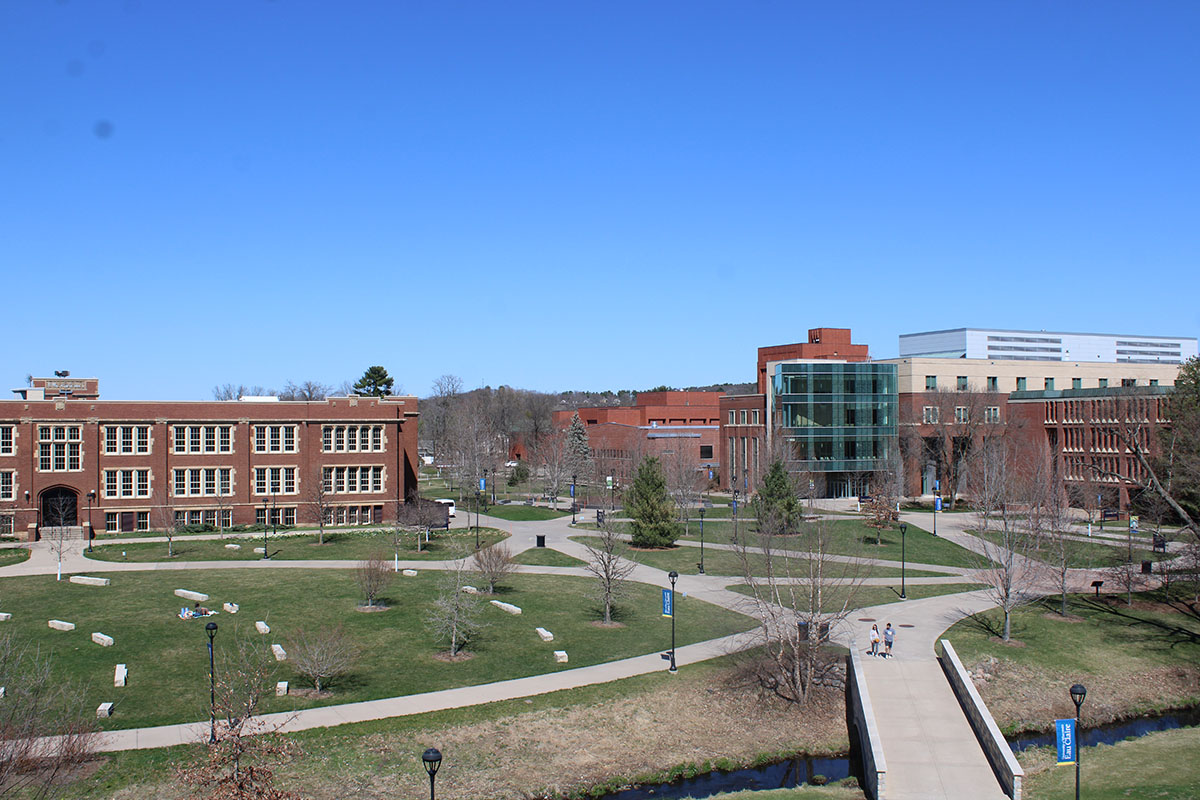The UW-Eau Claire Heating Plant is pivotal in the lives of students every day. It heats all the buildings on campus, including the residence halls, and provides a steam line that goes under the hill and across the walking bridge over the Chippewa River, keeping it free of ice in the winter.
The costs of heating the university are paid for by students as part of their segregated fees, and also in their housing fees and meal plans, Vice Chancellor of Budget and Finance David Gessner said.
While the Heating Plant does its best to keep costs low, Gov. Scott Walker’s plan to sell 37 state-owned heating plants could end up raising the cost to the university, which would affect the amount of money students pay to attend the university, Gessner said.
“I would expect that students would likely end up paying more for their segregated fees to support the student center, and more for their meals and more for their lodging in the dorms,” he said. “I don’t know for certain as this has never happened before.”
Walker’s plan to sell the state’s heating plants is part of his two-year, $6.4 million transportation plan. The money the state would make from selling plants such as the UW-Eau Claire Heating Plant would go towards raising $824 million in extra money for highways, roads and bridges.
However, if the plant were to be sold and privatized, Heating Plant Manager Jim Franklin said he thinks it will put the university in a tough place.
“You have a captive audience out here that can’t buy heat from any other location,” Franklin said. “So if they privatize this, and us being a non-profit organization, whoever buys it is going to make a profit, and they can’t run the plant cheaper than what we can run it based on state employees occupying the plant.”
Franklin said he doesn’t think this will be the best for students.
“Long-term, I think it’s a foolish decision…” Franklin said. “The university will be forced to make up the difference of the cost of fuel, and I don’t seen any other way of making that up other than tuition would go up.”
The heating plant currently works to keep the cost of heat as low as it can, Franklin said.

The cost of heating the university from July 2012 until April 2013 was less than $1.48 million.
The plant has reduced the amount of coal it has used in the past three years in favor of natural gas in order to operate more affordably.
Natural gas is a cleaner fuel for the environment than coal is, but the main reason for the change has been for the heating plant to remain most cost effective rather than for environmental reasons, Franklin said.
“Fuel market really dictates what fuel we’re going to be on,” Franklin said. “And natural gas is just so incredibly cheap right now that it is definitely the fuel of choice for us to be on. However, we can be cut off and curtailed off of natural gas at any time.”
Because natural gas is less reliable than burning coal because supply could be interrupted if it is in great demand, Franklin said, the plant also keeps a secondary boiler of coal standing by.
The UW-Eau Claire Heating Plant serves more than just the university. It also supplies heating services to Chippewa Valley Technical College and the State Building on Clairemont Avenue. In the past, it supplied heat to Sacred Heart Hospital as well, but three years ago the hospital upgraded their own boiler system and has been on their own since, Franklin said.
At full capacity, the plant can burn 170,000 pounds of fuel per hour. The plant’s peak load this winter was 91,000 pounds per hour. Typically, the plants peak usage lasts December through February and the plant has used 3,481 tons of coal this heating season.
While keeping the heating plant running at a non-profit rate is one thing Walker’s plan could affect, it may not be the only thing at stake for UW campuses.
Gessner said he also worried that some of the language of Walker’s 2013-15 biennial budget, of which the heating plant plan is a part, is too vague and could allow not just heating plants to be sold, but other state-owned property as well, including auxiliary buildings such as dormitories.
This would be especially unfair to students, Gessner said.
“The state owns them, yes,” he said. “But they were paid for by students primarily.”
According to a report released by the Legislative Fiscal Bureau three weeks ago, Walker’s budget would currently allow the Department of Administration to sell or rent out state property.
This means that university property, as it is state-owned, could eventually be sold with or without university approval.
“The DOA says, ‘Well,
we would never do that,” Gessner said. “But my response is, ‘Well, don’t write the law that way then.’”
However, Franklin said we need to remember that just because a change has been proposed doesn’t mean it will become law.
“At this point the bill out there is just that: a bill,” Franklin said. “We don’t know how it will come out in the final language; we don’t know if it’s even going to be passed.“






